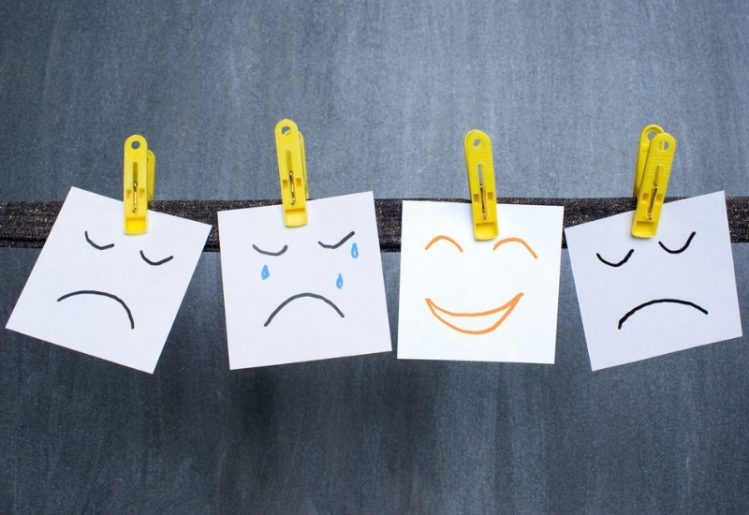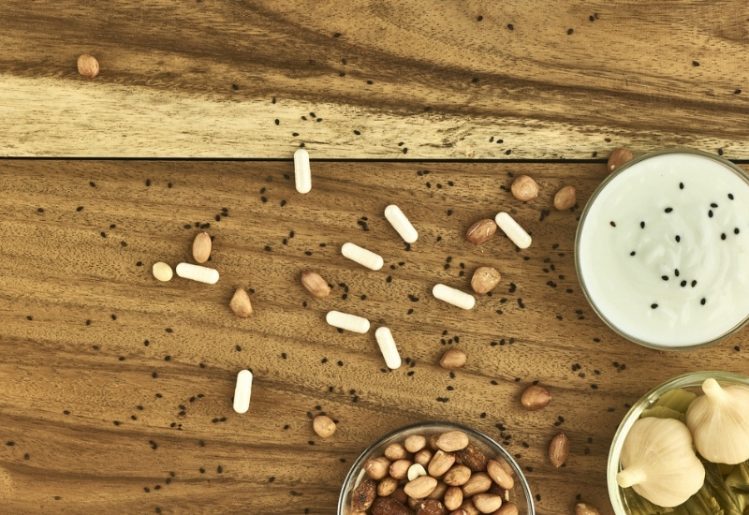It has been a well-known medical fact for years that probiotics are effective at treating a variety of gut-related issues. What has not been studied as much until recently is how this treatment may also be able to help those individuals who experience mental health challenges. When you understand how the gut and brain are so closely connected, it makes sense that a healthy gut would also promote a healthy state of mind. As more research becomes available regarding the closely connected gut-brain axis, many experts now believe that probiotics reduce symptoms of depression.
Defining Depression
 The National Institute of Mental Health defines depression as a mood disorder that lasts more than two weeks. It is important to understand that there is a difference between acute sadness related to a specific event and true depression. Signs of clinical depression include difficulty concentrating, challenges sleeping, disinterest in usual hobbies and activities and fatigue.
The National Institute of Mental Health defines depression as a mood disorder that lasts more than two weeks. It is important to understand that there is a difference between acute sadness related to a specific event and true depression. Signs of clinical depression include difficulty concentrating, challenges sleeping, disinterest in usual hobbies and activities and fatigue.
Because depression is a highly personalized issue, there is no set treatment to help sufferers. Most physicians will initially recommend natural treatment options such as exercise and healthy eating. If this does not help the problem, a doctor may prescribe medication to help the patient.
Getting the Most Out of Probiotics
Probiotics are actual living microorganisms that can provide many benefits to the body when ingested. While most probiotics are classified as bacteria, they can also involve certain types of yeast. You can nourish your body with probiotics through the use of supplements or by ingesting foods that have been prepared through the process of bacterial fermentation. Foods that are high in naturally occurring probiotics are yogurt, sauerkraut and kimchi.
Probiotics help the digestive tract to function properly by reducing the prevalence of diarrhea, irritable bowel syndrome and other inflammatory diseases that are associated with the gut. Maintaining a healthy gut is essential if you want to feel better overall. Without good gut health, you will likely feel uncomfortable and dragged down.
It is important to not confuse probiotics with prebiotics. While both prebiotics and probiotics can be helpful in encouraging healthy bacteria and other organisms in the gut, they are not the same. Prebiotics are a specific type of fiber that the human body is not able to digest. Their function is to serve as food for their probiotic counterparts.
How Can Probiotics Reduce Symptoms of Depression?
One thing that scientists know for a fact is that there is a bidirectional relationship between the gastrointestinal tract and the brain. This relationship is referred to as the gut-brain axis. New evidence shows that gut microbiota is related to both gastrointestinal and extragastrointestinal diseases. Increasing research shows a link between inflammation of the gut and mental illnesses such as depression and anxiety.
Because probiotics can be instrumental in restoring a healthy microbial balance, it is not a surprise to learn that they can also help treat and prevent depression and anxiety. By learning more about how the gut microbiota develops, scientists and medical researchers have zeroed in on the applications of using probiotics to help to reduce the symptoms often associated with depression.
What the Studies Have Shown Us
 A recent review article helped shed light on the question of how probiotics can be a powerful ally in the fight against depression. The authors of this review looked at seven published studies between the years of 2003 and 2019. Through the extensive review, the authors were able to discern that there was a clear benefit to using dietary probiotic intervention to help alleviate the symptoms of depression. This benefit was present despite the different controlling factors of each study.
A recent review article helped shed light on the question of how probiotics can be a powerful ally in the fight against depression. The authors of this review looked at seven published studies between the years of 2003 and 2019. Through the extensive review, the authors were able to discern that there was a clear benefit to using dietary probiotic intervention to help alleviate the symptoms of depression. This benefit was present despite the different controlling factors of each study.
The review also found that intervention involving both prebiotics and probiotics also proved advantageous for treating depression. However, the review noted that the exclusive use of prebiotics did not deliver any meaningful advantages. In order to achieve measured benefits, probiotics must be a part of the support of the gut-brain axis.
Another key finding of the review is that the combination of prebiotics and probiotics did not seem to be helpful in reducing anxiety in individuals. In addition, the review found that there is increasing evidence that improving the gut microbiome can reduce the risk of chronic health problems that sometimes go hand in hand with depression. In short, the far-reaching effects of the usage of probiotics to treat depression could go well beyond the benefits to the overall emotional and mental state.
Because there is no cure for depression, it is important that doctors and scientists examine all of the factors that feed into this serious mental issue. A comprehensive treatment and prevention plan will ensure that no stone is left unturned in fighting this illness. As more research continues to emerge about the use of probiotics, it is clear that this angle can play a significant role in the battle against depression.


